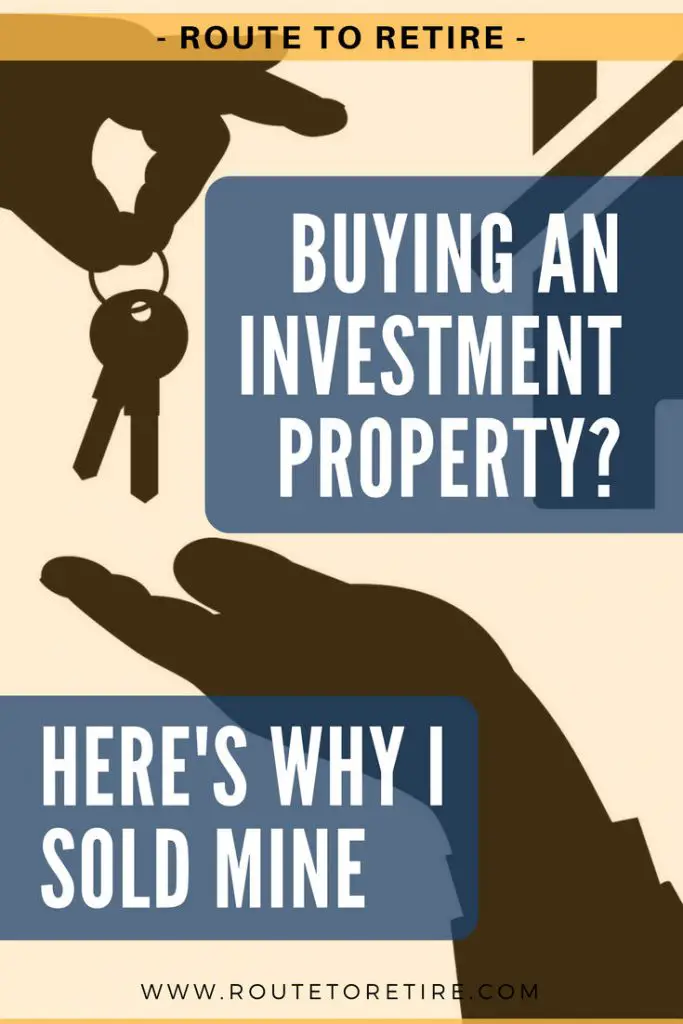 Buying an investment property might be one of the smartest things you can do… if you do it right.
Buying an investment property might be one of the smartest things you can do… if you do it right.
Most of my money is in the stock market because of the ease of investing in it, the company match offered, and other incentives. However, I don’t fully trust it.
The biggest reason why is that you don’t really have control over what happens. Sure, you can choose your specific investments, but it’s not up to you to determine if that stock will go up or down.
When you’re buying an investment property, though, you have the ability to determine your own path. If you understand the numbers, you can put yourself in a position where you’ll likely be successful.
We all know that people will always need a place to live and there are a lot of folks who don’t have the money or the desire to buy. Rental properties give you the ability to provide this housing to those folks.
Not only that, but you have many different ways to come out ahead buying an investment property. I was naive when I bought my first rental property and made a number of mistakes.
I also thought that rent is the only benefit of owning property. However, cash flow is only part of the equation. Other great facets include:
- Tax shelter – you can make good money on your property but still end up showing a paper loss when filing your taxes
- Amortization – your tenants are paying down the mortgage and eventually can pay it off, which will increase cash flow tremendously
- Possible appreciation of the property – don’t buy based on this alone though – this is just icing on the cake!
- Leverage – this can be a double-edged sword, but if used right, it can really help you come out further ahead than the stock market will allow
Check out my The 4 Ways to Make Money with Rental Properties post with more details on each of these benefits.
The house in question
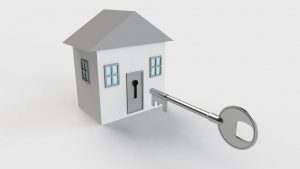 Robert Kiyosaki introduced me to the idea of assets versus liabilities probably around 2002. His books Rich Dad Poor Dad and Cashflow Quadrant were true eye-openers and I decided (among other things) that I wanted to get in on buying rental properties.
Robert Kiyosaki introduced me to the idea of assets versus liabilities probably around 2002. His books Rich Dad Poor Dad and Cashflow Quadrant were true eye-openers and I decided (among other things) that I wanted to get in on buying rental properties.
I bought a single family home in 2003 in my twenties with the sole intention of it being an investment property. I was young and stupid and bought a house that wasn’t in the best area. But between luck and determination, I was able to make it work.
This was the first house I ever owned and we lived there for a few years first while fixing it up. We then moved out and started renting it out in 2009 – crazy gap of time, right?!
I hired a property management company right out of the chute because I didn’t want to deal with the day-to-day. They ended up getting tenants in the house that lived there from 2009-2018. How awesome is that!
To put this house into perspective, here are some of the related numbers and stats…
- Purchase price: $68,500
- Down payment: $3,500 (30-year fixed)
- Starting rent (2009): $695 / month
- Ending rent (2018): $715 / month
- Mortgage payment: ~$550 / month (including taxes and insurance)
If you live in a higher cost-of-living city than in northeast Ohio, these numbers might raise an eyebrow. But yes, housing can be this cheap in certain areas like Cleveland or Akron.
Overall, our tenants paid us over $65,000 in rent throughout their time living there.
Throughout their stay, I went through a couple different property management companies that charged fees differently (one at $35/month and one at 10% of rent). Obviously, this was an optional expense, but one in which I wanted to have in place.
After all costs (including property management, repairs, etc.), we ended up pocketing around $5,000 during their stay.
Pathetic, right? It just goes to show you that you need to understand your numbers when buying an investment property.
If you think your income will basically be your rental income minus your mortgage payment like I did, you’re setting yourself up for a problem and need to start learning first. I got lucky on this that we didn’t end up losing money on it.
Nevertheless, we had some indirect wins as well. Because we were able to take a paper loss on this house almost every year, that dramatically helped on our taxes. Additionally, they helped pay a good portion of the mortgage on the house… about $40,000 of it!
More importantly, we gained the knowledge and experience to not keep us from making those same mistakes on our next property down the line… our duplex. But that story’s for a different day.
The damages
When you own a rental property, you gotta expect a little wear and tear. Having the same tenants in this house for nine years, I knew there would be some rehab that would need to be done.
For instance, we had installed new carpet in the house before they rented from us. That was nine years ago, so of course, that would need to be replaced.
However, what we found was a disgusting mess. I seriously doubt they ever cleaned the house while they lived there – and that’s not some off-the-wall exaggeration.
Most of what we found just requires some TLC and some elbow grease to get the place cleaned up.
It does suck that they treated the property this way. However, that really doesn’t even bother me.
What does bother me is how they lived in filth for all this time… with kids. I feel bad for their children having to live like this.
Why I should have hung onto this house

We used a HELOC on our main home to pay off our mortgage on the rental house in 2016. Then we paid off the HELOC in the summer of 2017 so the house was now free and clear.
That means that our rental income got a lot larger in 2017. It’s nice to own an asset like this without a mortgage hanging over your head.
In other words, if I hung onto this house, our income would be pretty nice every month. After buying an investment property, this is the hump landlords look forward to reaching for years.
This spike in monthly income would allow me to start paying down the mortgage on the next rental property more quickly. Then with that rental being paid off, the additional income from both properties could be used to pay off the next one faster… and so on and so on.
In other words, it creates a debt payoff similar to a debt snowball or avalanche that many folks are familiar with in the world of consumer debt.
My bad understanding of numbers that caused us to make barely any money on this property won’t be so terrible now! We can start to bring in some good income now!
Sounds like things are looking good, Jim… let the good times roll!
Why I decided to sell it instead

Not so fast! As I mentioned earlier, rent’s not everything.
The first problem we have is that this house is old. It was old when we bought it and it’s even older now. It was built in 1917 and needs a lot of work done to it… a LOT of work.
I learned on our first go-around with this house that no repairs are easy because it was built in a day when nothing was really standard. Here’s an example:
At one point, when we were living in the house and fixing it up, I bought eight interior doors to replace the ones the previous owner had painted (very ugly!).
If you’re a real handyman (I wasn’t), you’ll know that home improvement stores sell door by their width… easy enough.
After buying the new doors, we were outside staining them and once they were dry, I started bringing them inside.
To my surprise, the doors were about a foot too tall. Yikes!
And with them being hollow doors with the doorknob holes already cut, this presents a problem. Cut the top or bottom and it throws off the height of where the knob is. It also makes the top or bottom wide open with less stability.
After this disaster, I was able to return a couple doors that we didn’t stain, but the rest I ended up just donating to Habitat for Humanity. At least I got a little something for my taxes with that donation.
Lesson learned.
Between the cost of repairs and the headaches we’re bound to come across, this made me think twice. I would bet we’d be talking about $10,000 in repairs and cleaning.
The other big reason we decided to sell the house is location-based. It’s not in a very good area. It wasn’t great when we lived there and, in the 15 years since we’ve owned it, the neighborhood’s gotten much worse.
In fact, just a couple weeks ago, a shooting took place only a couple doors down from the house. And, unfortunately, that’s not the first one. A few years ago, there was a shooting almost directly in front of the property.
Hmm, guess I should have paid more attention to the first rule of real estate when I was considering buying an investment property, eh? Location, location, location.
You can change the appearance and even rebuild the house, but that’s not going to help… lipstick on a pig, anyone?
Fortunately, there’s still a slight demand in the area. There are a lot of refugees that the city has been bringing in that need housing and they tend to look to this area for housing.
Additionally, we’re at a good point in the real estate market. Hard to say how much longer we’ll be in a seller’s market, but this was likely a now or never opportunity.
Even so, we still sold the house for a loss. We’re expecting to close on it later this week with a sale price of $50,000… a loss of $18,500.
That’s rough, but at least we’ll be able to capitalize on that loss when we do our taxes next year.
Buying an investment property… take three?

This puts us in an interesting position. We still own the duplex, but I’d like to have more property.
With a single-family house, that means that when it’s empty, there’s no money coming in. With a multifamily property, when a tenant leaves, you still have other tenants hopefully picking up some or all of the slack.
And now that I’m better with calculating the numbers, I’m able to make sure we get a better deal.
That’s one option. Another might be to hang onto it and look at buying an investment property when we make the move to Panama in 2020.
Another choice we have is to take the money and run with it. We can save it or invest it your normal stocks or bonds. Or we could put it toward something else like shares of a real estate investment trust (REIT) (though we already own some of these).
Overall, I think it made sense to sell this house. There are much better properties out there and this was really the opportune time to sell… even at a loss.
Only time will tell if we decide to buy another property in the near future. Either way, this puts us in a good position to be ready for a good deal, should it arise.
Have you considered buying an investment property to grow your wealth? Was I stupid to sell one of mine?
Thanks for reading!!
— Jim

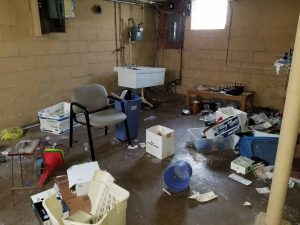
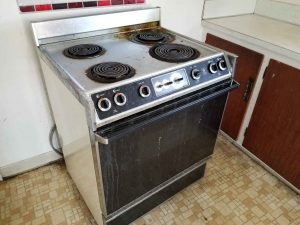
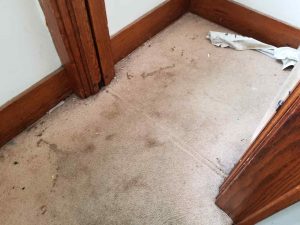
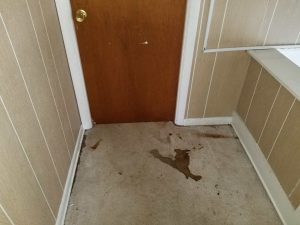
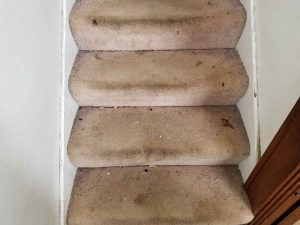
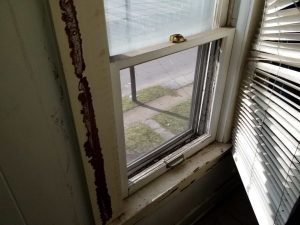
I invested in a few houses as part of a group and it was a disaster (you got 9 years out of one tenant, that’s a tremendous success!). Real estate is a path to riches but it’s not for everyone… and that includes me. 🙂
It’s got a lot more headaches than index funds, that’s for sure. But, probably less headaches than running a business though. Not sure if your real estate group investment was mostly newbies, but I definitely got further ahead with the second property once I knew a little more of what I was doing.
— Jim
As a real estate guy the title of your post made me cring. After reading your post I think you are making a solid decision to let this one go. Glad you are still interested in buying more real estate. Looks like you’ve learned a few lessons over the years. Look forward to reading about a future acquisition.
I sucked you in with the title, huh? 😉 I’ll be picking your brain once I get ready to move forward on our next one.
— Jim
As someone that’s shopping for an investment property, this seemed like a good post to read. Sounds like you made a good decision to get out of that one; sorry it didn’t end up working out ultimately. Best of luck on the next purchase!
Thanks, Andy! It could have ended much worse and it definitely helped me make better decisions on the second property. If you’re new to this, I strongly recommend learning what you can from places like BiggerPockets before jumping in. You’ll still make mistakes (experience is the only way past that), but more education can keep you from making the big mistakes.
— Jim
So you guys still came out ahead a little bit, right?
Wow, I can’t believe the house lost value like that over the years. The neighborhood must have really gone downhill. That’s too bad.
I learn my lesson about buying in a crappy neighborhood too. You’ll just get tenants with a lot of problems. Now, I try to stick to nicer area. It cost more initially, but way less headache.
I think you made a good move.
Thanks, Joe. Yeah, one of the smaller percentages of neighborhoods that have gone down in value in this over-priced market. Our duplex is in a better location so we’re good there. It’s also very possible that we might rent out our house when we move to Panama and that’s in a nice neighborhood as well.
I agree with your thoughts that it has the potential to cause less headaches in the nicer areas (though now always the case).
— Jim
Hi Jim,
I’m not a real estate person at all. One single family residence is more than enough for me. That said, and as you know, many people swear by real estate investing. I prefer the ease of financial assets. You point is a good one, however, that the investor has little control of the market value.
I prefer to focus on the dividends and interest my financial assets can provide. The cash flow is much more stable than market value of the underlying asset and the changes tend to be (not always) increases.
Nice analysis on your real estate endeavor. Thanks for putting it together. Tom
Hi Tom – I like the idea of dividend stocks because, just like real estate rentals, your focus is on the cash flow and not the appreciation (that’s just gravy!).
— Jim
We own four rental condos and so far have had good luck. We did buy in stellar locations but paid for it. Everyone’s path is different!
So true, Doc – pros and cons to A through D neighborhoods and they’re definitely different. My rental house was probably in a C- area and our duplex is in a solid B area (big fan of this area). I haven’t done anything in an A neighborhood like I’m guessing your condos are in. If we end up renting out our current residence when we move to Panama though, that might be our opportunity. Hopefully, we have the same luck as you’ve had!
— Jim
Yikes! Selling at a loss after owning the property so long is no fun!
Thanks for your honesty about this investment Jim. So often you just see people extolling the virtues of owning investment properties, but few ‘bad cases’. Reminds me of bitcoin ‘investors’.
Anyway, love the honesty! Good luck with whatever you do with the money!
I should have taken the money and put in on a trifecta for the Kentucky Derby, but I’m guessing that might be frowned upon in the personal finance community! 😉
So true about just hearing about the good out there. The more we can share the “not-so-good”, the more others can learn and grow from it as well.
— Jim
Hey Jim,
Nice article and analysis. I sold a property at a loss several years ago in a very similar situation – old house, bad location, etc. Those aren’t getting any better, so I think you are wise to cut losses and move on. Even with real estate losses, the LESSONS represent another firm of compounding. It sounds like you have already done better with the duplex and I am sure you will do better still on the next purchase. That is the beauty of that control you mentioned with real estate. Good luck with the next piece of the puzzle!
Ain’t that the truth – learning from it made me understand the ins and the outs SO much better. I’m still no Chad Carson, but I’m gonna keep working on it! 🙂
— Jim
You’ll have to do a lot more bad deals to be like me:) You seem to have figured it out faster than me, so I don’t wish it on you!
Haha, I might have figured it out with my first rental property, but that’s after owning it for 15 years! I’ll still look to you as the stud of real estate! 😉
— Jim
I owned two houses just like yours! It sucked!
Each had $720/month in rent and the tenants (which moved out here and there) were disgusting/horrible!
I figured out how to make those low rent houses work though. You can’t hire a property manager(!!!), since between repairs (which they will markup when they fix them), turnover fees and monthly fees you will end up with basically nothing.
That idea was painful for me so I sold one of those houses and accidentally got an amazing tenant in the other one.
If you get back into it I would recommend pricier houses with more monthly income and better tenants. They have more buffer to suckup manager fees and repairs etc.
Good luck!
Yeah, sometimes being a landlord just outright sucks. In fact, we’re just starting the first eviction I’ve ever had to do at the duplex we still own and that sucks, too… and is costly!
But it’s still hard to complain. That first house that I sold was horrible, but I did learn so much from that experience. It helped prepare me to buy the duplex that’s given us some great cash flow over the past handful of years (past year excluded because of the eviction and upgrades we did).
Sounds like you did the right thing by getting rid of one of the pain points in your life with one of the house. Good luck on the other – hopefully that tenant stick around and sends some $$$ your way over the years to come!
Hi Jim
Good article, I have made the the same choice in the past. It was a house that I lived in for a fee years and then moved cities and rented the property out. Intention was to keep it as an investment rental property.
I eventually sold it after 14 years because the hassle didn’t seem worth it. I did make money off it though. Interesting thing was I did a calculation to see if I would have been better off investing the money. My calculation showed that it was about the same. But that was a pretty conservative investment portfolio and it didn’t take into account my time to manage the rental.
So my conclusion is I’d rather go with an stock market investment.
Yeah, your time is probably the most valuable. It’s probably easier to see that you made the right decision now looking back but sometimes it’s a lot cloudier while you’re in the middle of it. I’m glad I sold mine as well, but I think holding onto the duplex we own is also a good decision – I guess time will tell!